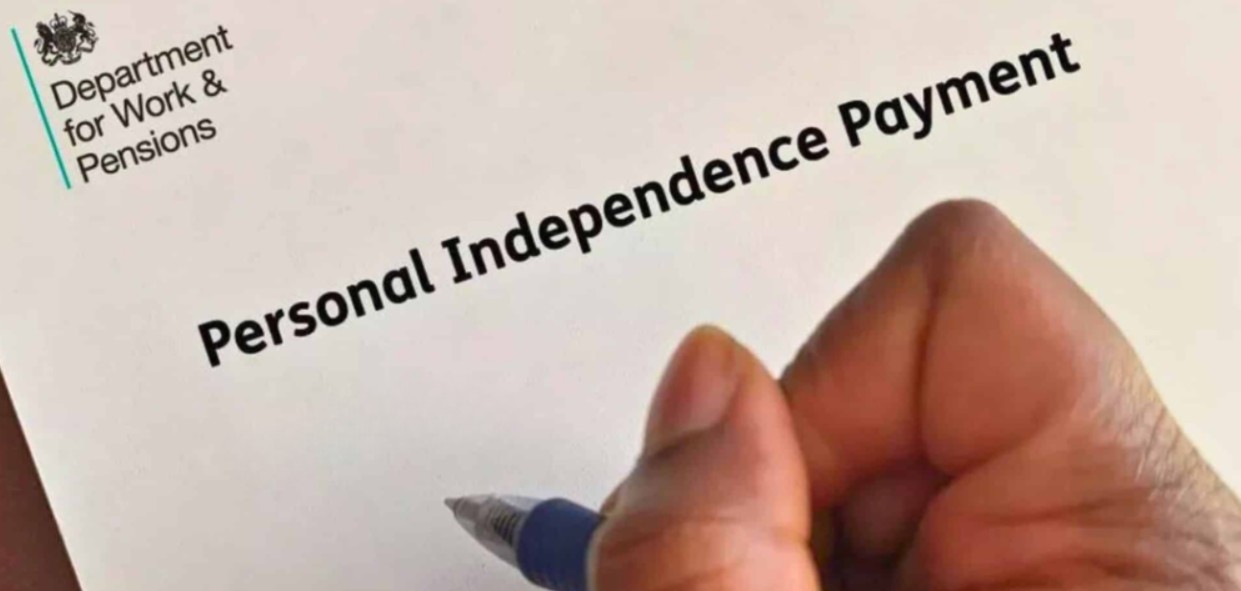If you’re currently claiming Universal Credit and have recently been awarded Personal Independence Payment (PIP), it’s perfectly understandable to wonder:
“Do I need to tell Universal Credit if I get PIP?”
The simple answer is yes, and telling them as soon as possible can be not only a legal obligation, but also a financial advantage.
In this article, we’ll explore why it’s important to inform Universal Credit about your PIP award, what changes might follow, how to report it, and the possible benefits you could receive as a result. If you live in the UK and claim either or both benefits, this guide is for you.
Understanding PIP: What It Is and Who It’s For?

Personal Independence Payment (PIP) is a non-means-tested benefit designed to help people who have long-term physical or mental health conditions that affect their daily lives or mobility. PIP can be claimed whether you’re in work or not and is based on how your condition affects you, not the condition itself.
PIP is split into two parts:
- Daily Living Component – for those who need help with day-to-day tasks such as eating, dressing, personal hygiene, or communication.
- Mobility Component – for people who need assistance moving around or planning, and making journeys.
Each component is paid at either a standard or enhanced rate, depending on the level of assistance required. Importantly, PIP is not influenced by income, savings, or employment status, making it different from most other UK benefits.
Universal Credit: A Quick Refresher
Universal Credit is a means-tested benefit paid to individuals or families who are on a low income or out of work. It has replaced several legacy benefits in the UK, including:
- Income Support
- Jobseeker’s Allowance (income-based)
- Employment and Support Allowance (income-related)
- Housing Benefit
- Child Tax Credit
- Working Tax Credit
Unlike PIP, Universal Credit considers income and savings, so the amount you receive can vary based on your circumstances.
Do I Need to Tell Universal Credit If I Get PIP?
Yes — you must inform the DWP about your PIP award if you are receiving Universal Credit.
This is considered a change in circumstances, and you are legally required to report it. Failing to do so could result in overpayments, penalties, or even an investigation into benefit fraud.
But there’s good news: informing Universal Credit about your PIP status may increase the amount of money you receive and unlock additional types of support you may not yet be aware of.
Why You Must Report PIP to Universal Credit?
1. It’s a Legal Requirement

The Department for Work and Pensions (DWP) requires all Universal Credit claimants to report changes in their circumstances, including new or additional benefits.
If you’ve been awarded PIP and don’t report it, this could lead to:
- Overpayments that you will have to repay later
- Suspension or reduction of your Universal Credit payments
- Potential investigation if the omission is considered intentional
Keeping your claim accurate protects you from these risks.
2. You May Be Entitled to More Universal Credit
Receiving PIP can make you eligible for extra elements within Universal Credit that increase your monthly payment, such as:
Limited Capability for Work Elements:
If your health condition limits your ability to work and you are awarded PIP, you may qualify for one of these additional elements:
- Limited Capability for Work (LCW)
- Limited Capability for Work and Work-Related Activity (LCWRA)
The LCWRA element, in particular, adds a significant amount to your monthly Universal Credit and removes work-related activity requirements. It’s worth hundreds of pounds extra each month.
Career Element:
If you or your partner provides care for someone who gets the daily living component of PIP, you could claim the Carer Element — currently worth over £180 per month.
Exemption from the Benefit Cap:
The Benefit Cap limits the total amount of benefits most people aged 16 to 64 can receive. However, households where someone is receiving PIP are often exempt from this cap, meaning your full Universal Credit entitlement can be paid.
Housing Support:
PIP may also entitle you to additional support with housing costs, especially if your condition means you need specific accommodation or adaptations.
Other Benefits You Might Now Qualify For
Informing Universal Credit about your PIP status doesn’t just impact your benefit payments. It can also open doors to a wide range of other services and support, such as:
- Council Tax Reduction – many councils offer discounts or full exemptions for people on PIP
- Blue Badge Scheme – easier access to disabled parking
- Motability Scheme – lease a car, mobility scooter, or powered wheelchair using your mobility PIP
- Disabled Facilities Grants – government funding for home adaptations
- Free or subsidised public transport – including bus passes and railcards
- Warm Home Discount – support with energy bills
- Priority for social housing – if your current living arrangements don’t meet your needs
The key is ensuring your records are up to date, so you’re not missing out.
How to Report Your PIP to Universal Credit?
The process of reporting your PIP award is relatively simple. Here’s how to do it correctly:
Step-by-step:
- Log in to your Universal Credit online account
- Select ‘Report a Change’ from the menu
- Choose ‘Something Else’ and write a journal entry explaining that you’ve been awarded PIP
- Include key information:
- Start date of the PIP award
- Type and rate of award (Daily Living, Mobility, or both – and whether standard or enhanced)
- Duration of the award
- Upload a copy of your PIP award letter (if available)
If you can’t report online, you can also call the Universal Credit helpline.
Once submitted, your claim will be reviewed by a case manager or work coach, and your future payments may be adjusted accordingly.
What Happens After You Report It?

After submitting the details of your PIP award:
- The DWP will assess whether you’re eligible for extra elements or exemptions
- Your monthly Universal Credit statement will reflect any changes to your payment amount
- You may be asked to undergo a work capability assessment if you haven’t already
- You could be moved into a different claimant group (for example, from ‘searching for work’ to ‘no work-related requirements’)
If you’re already receiving LCW or LCWRA, your entitlement may simply be confirmed and your payments maintained or increased.
What If You Don’t Tell Them?
Failing to report your PIP award can have serious consequences. These include:
- Overpayment recovery – the DWP will reclaim any money you received in error
- Sanctions – your payments may be reduced for a set period
- Investigation or prosecution – in cases of deliberate fraud or misrepresentation
Even if you’re unsure whether PIP will affect your Universal Credit claim, it’s always best to report it and let the DWP decide.
Summary: Key Takeaways
If you’ve recently been awarded PIP and are already receiving Universal Credit, here’s what you need to remember:
- Yes, you must inform Universal Credit about your PIP award
- Reporting it could increase your benefit entitlement
- You may gain access to additional support and exemptions
- The reporting process is quick and straightforward
- Failing to report it can result in penalties or overpayment recovery
By reporting the change promptly, you ensure that your Universal Credit reflects your actual circumstances, which could significantly improve your monthly income and access to services.
Need Further Support?
If you’re unsure how PIP interacts with Universal Credit, or you need help reporting it, the following organisations offer free, expert advice:
- Citizens Advice – www.citizensadvice.org.uk
- Turn2Us – www.turn2us.org.uk
- Scope (Disability Charity) – www.scope.org.uk
- Your Local Council – For support with housing, Council Tax, and local schemes
Final Word
It’s not only a legal obligation, but also an opportunity to receive the full financial support you’re entitled to.
For many in the UK living with long-term illness or disability, PIP combined with Universal Credit can make a real difference in quality of life. But that only happens if you keep your benefit records up to date.

Leave a Reply